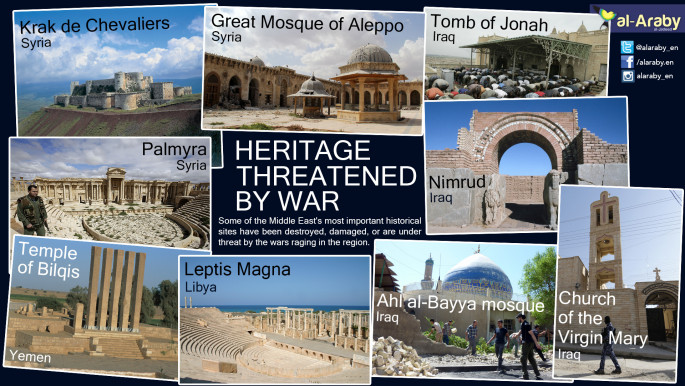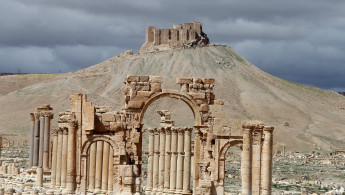The Islamic State group are 'terrified of history'
Islamic State fighters who destroyed the Arch of Triumph in the ancient Syrian city of Palmyra "are terrified by history and culture", according to Unesco's director-general.
The militants blew up the arch, dating from between AD193 and 211, as part of their sustained campaign of destruction of heritage sites in areas under their control in Syria and Iraq.
Irina Bokova, Unesco's chief, condemned the most recent attack, saying the UN's scientific and cultural body would make every effort to ensure the perpetrators of the destruction were brought to justice.
| Extremists are terrified by history and culture because understanding the past undermines and de-legitimises their claims - Irina Bokova, Unesco |
The Palmyra site is listed on Unesco's World Heritage List and had once attracted an annual 150,000 tourists.
"This new destruction shows how extremists are terrified by history and culture - because understanding the past undermines and de-legitimises their claims - and embodies an expression of pure hatred and ignorance," Bokova said.
She said Palmyra "symbolises everything that extremists abhor - cultural diversity, dialogue between cultures [and] the encounter of peoples of all origins".
"There will be no impunity for war criminals, and Unesco will make every effort, at its level, and in close cooperation with the International Criminal Court, to make sure that the perpetrators of the destruction are tried and punished," Bokova said.
Known as the "Pearl of the Desert", the oasis town of Palmyra is situated about 210 kilometres [130 miles] northeast of Damascus, and became famous as a stopping point for caravans travelling on the Silk Road.
 |
|
| World Heritage sites in the Middle East threatened by war: Click here to enlarge |
Historical sites have been frequently damaged since the war began, struck by shelling, air strikes - or exposed to rampant looting.
Syrian government officials already say they have moved some 300,000 artefacts from around the country to safe places over recent years, including from IS-controlled areas.
The Islamic State group's advances mean antiquities in Syria and Iraq face the danger not just of damage but of intentional eradication.
The rush has been on to find ways to protect Syria's millennia-long cultural heritage in the face of the threat that much of it could be erased by the country's war, now in its fifth year.



